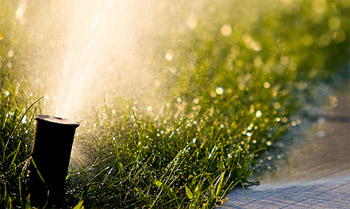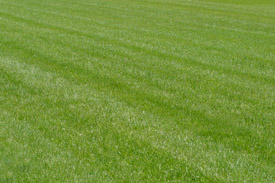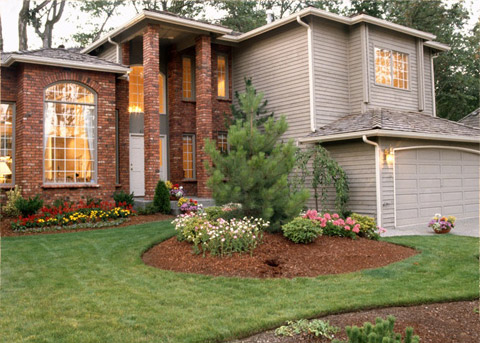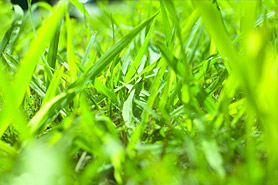Lawn Care Tips
Watering
Keeping your lawn well-hydrated is essential for a vibrant yard. Proper watering and fertilization go hand in hand.

| Question | Answer |
|---|
| How long should I water my grass? |
Use a can test: mark ½″ in a can, run sprinklers until it fills, then repeat twice a week. |
| Can I rely on rain alone? |
Rarely—measure rainfall with a gauge and supplement with sprinklers unless you get over an inch weekly. |
| How can I tell if my lawn is under-watered? |
Visible footprints that remain are a clear sign your turf needs more water. |
| Why is my lawn brown despite watering? |
Compacted soil or thatch may block water from reaching roots—consider aeration or de-thatching. |
| What’s the best time to water? |
Early mornings between 6–8am to minimize evaporation and disease risk. |
Troubleshooting
From thatch control to aeration and bare-spot repair, here’s how to tackle common lawn problems.
| Question | Answer |
|---|
| What is thatch? |
A layer of dead grass and roots that blocks water and nutrients from reaching the soil. |
| How do I prevent thatch build-up? |
Follow proper mowing, watering and fertilizing practices—avoid scalping and over-watering. |
| How do I remove thatch? |
Use a de-thatching tool or aerate the lawn to pull up plugs and break through the layer. |
| When should I de-thatch? |
Late spring in Georgia—allow 2–4 weeks for the lawn to recover before peak growth.
 |
| What is aerating? |
Aeration pulls soil plugs from the lawn, creating air channels for roots. |
| When is the best time to aerate? |
During peak growth for your grass type so recovery is quick and effective. |
| Seeding or sodding—which is better? |
Seeding is budget-friendly; sodding provides instant coverage and a polished look. |
| How do I repair bare spots? |
Match the surrounding grass type, lay seed or sod, water daily, and delay mowing until established. |











